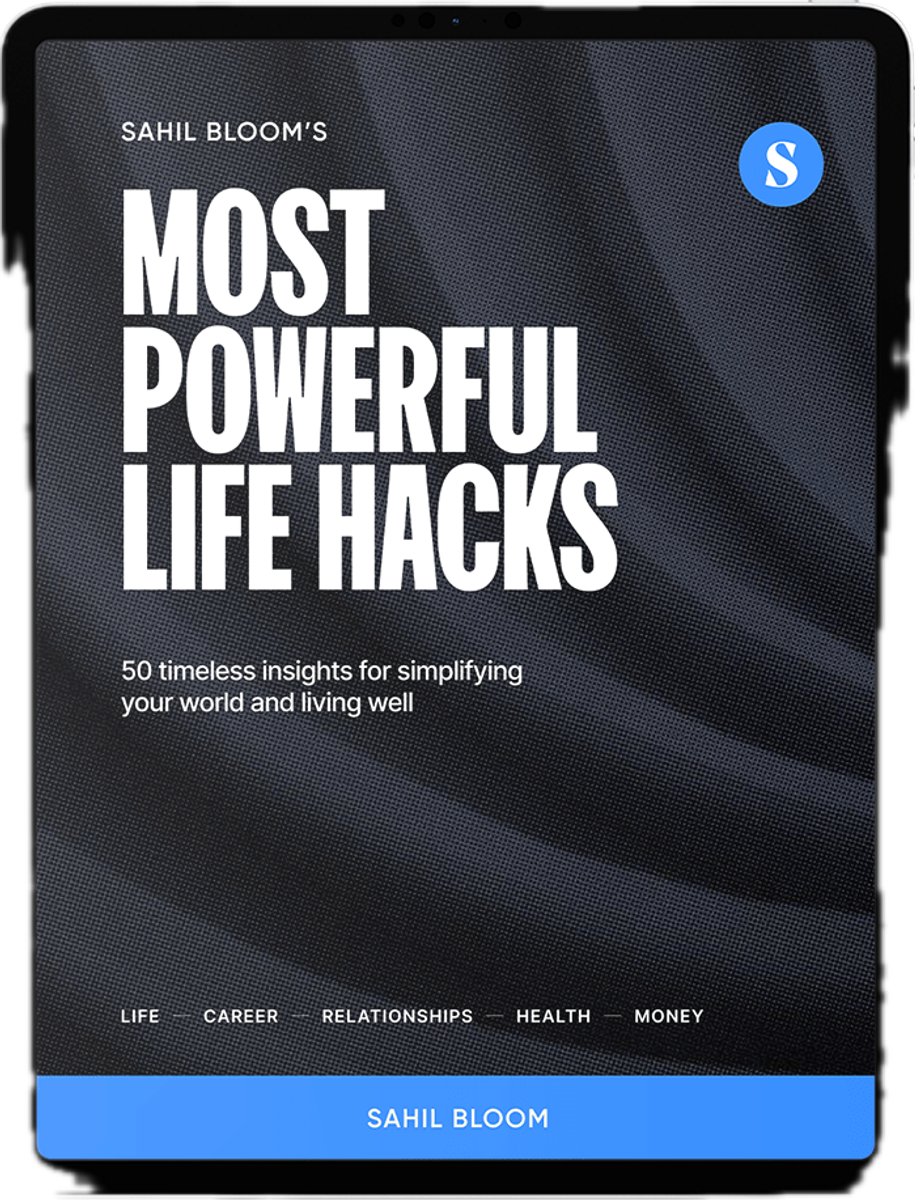Life Hacks:

Sahil Bloom’s Most Powerful Life Hacks - a series:
Life is really simple, but we insist on making it complicated.
Confucius
The spirit of this quote rings true: We humans have a tendency to manufacture complexity. We make progress in our lives—personally or professionally—and decide that the best way to celebrate that progress is to sprinkle on a new bit of chaos.
It's a rather frustrating (and hilarious) species-wide trait:
We book the relaxing vacation, only to fill every moment of it with activities that leave us more drained at the end than we were at the beginning.
We get the promotion that will reduce our money stress, so we celebrate by buying the boat that is constantly in need of servicing and repairs.
We feel busy and stressed, so we cut something out of our lives, only to feel stressed about not feeling busy, so we add something back in.
We can all come together and laugh at our "complexification" of life. But after we have that good, hearty laugh, let's talk about ways to simplify it.
Here are some short, timeless insights for simplifying your world—"hacks" for your life, careers, relationships, health, money, and more...
10
Do one hard thing every day when you could do it the easy way.
Take the stairs even if the elevator is working, run up the hill even if there is a flat route home, take the cold shower even if the hot water is working. When we do hard things, we train ourselves to embrace friction and build resilience. Hard things compound.
11
Have at least one thing in your life that you are bad at (but love doing).
Ambitious, driven people tend to do everything with some specific end in mind. It's wonderfully refreshing to do something just for the sake of doing it.
12
Stop trying to remember things and just write everything down.
Use your phone notes app—or better yet, carry a small pocket notebook and pen. The old-fashioned way still works wonders.
Common Causes Of Bad Decisions:
1. Not asking, “and then what?
2. Blindness to large trends (blind spots)
3. Assumptions based on small sample sizes
4. Conforming to expectations/authority/group
5. Wanting the world to work the way we want rather than the way it does.

